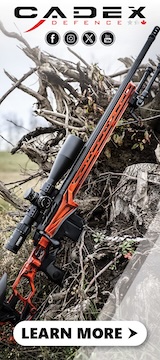So my white tail came back positive with CWD. My question is what are people doing with all their equipment that would have been in contact with the prions? My knives, clothing, boots, gloves, everything my gloves touched etc etc could have been in contact with CWD prions during the harvesting process and those prions are extremely hard to kill. Do you typically just toss everything in the garbage (a very expensive choice)? My concerns basically come from a study in Calgary that suggests humans MAY not be totally immune from the disease.
Last edited:




































































